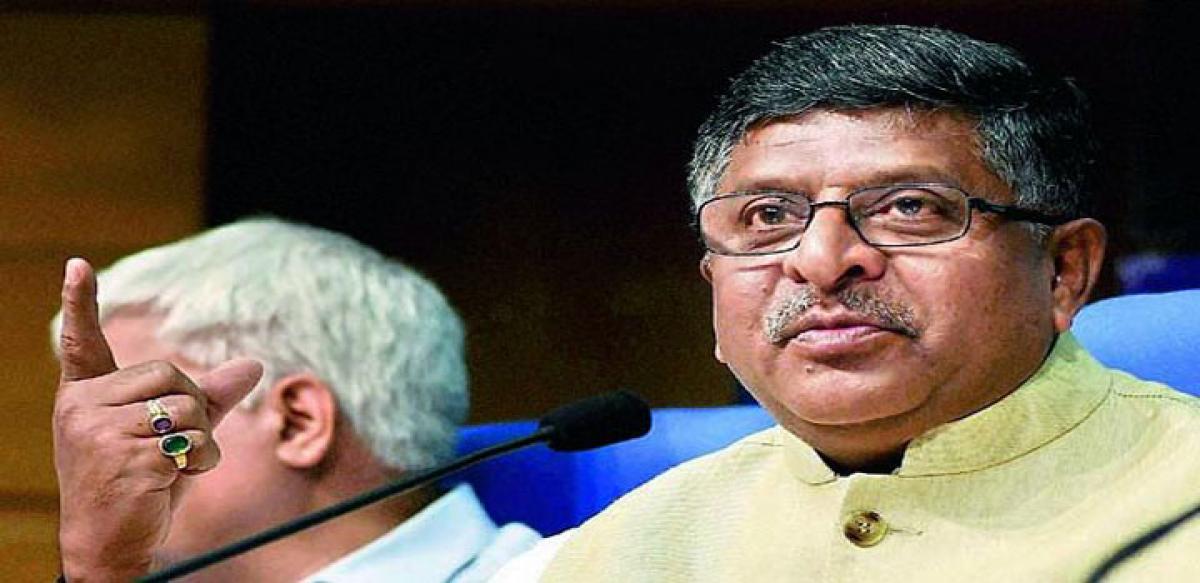Just In

The Supreme Court ruling on the National Judicial Appointments Commission (NJAC) on Friday is a \"setback to parliamentary sovereignty\" but not to the government, said Union Communications and Information Technology Minister Ravi Shankar Prasad.
.jpg)
New Delhi: The Supreme Court ruling on the National Judicial Appointments Commission (NJAC) on Friday is a "setback to parliamentary sovereignty" but not to the government, said Union Communications and Information Technology Minister Ravi Shankar Prasad.
"While upholding very dearly the principle of independence of judiciary, I regret to say that parliamentary sovereignty has received a setback today," said Ravi Shankar Prasad.
The minister maintained that the "NJAC was a part of judicial reforms that was exercised after deep consideration".
"In our view, this exercise was undertaken after deep consideration of more than 20 years, as part of judicial reforms. We will go through the judgment and come out with a structured response," Prasad said.
"It was a unique moment in the democratic polity of India that all political formations were unanimous that the collegium system needs to be replaced by the National Judicial Appointments Commission," said Prasad, a former law minister and himself a practising senior lawyer at the Supreme Court.
"Various commissions headed by eminent judges, Administrative Reforms Commission and different parliamentary committees recommended the NJAC," the Union Minister said.
"Even former chief justice of India J S Verma had publicly raised misgivings on the working of the collegium system and suggested a serious rethink," he added.
Prasad said the NJAC bill was brought in Parliament in a "truly remarkable scenario"."Our government brought the NJAC bill in a truly remarkable scenario in the country.
There was complete political unanimity. The Lok Sabha passed it without a single dissent and in the Rajya Sabha there was only a single walkout and that too by Ram Jethmalani."
"Twenty state legislative assemblies unanimously approved it despite the continuous divide in the politics of India," he said.

© 2024 Hyderabad Media House Limited/The Hans India. All rights reserved. Powered by hocalwire.com







